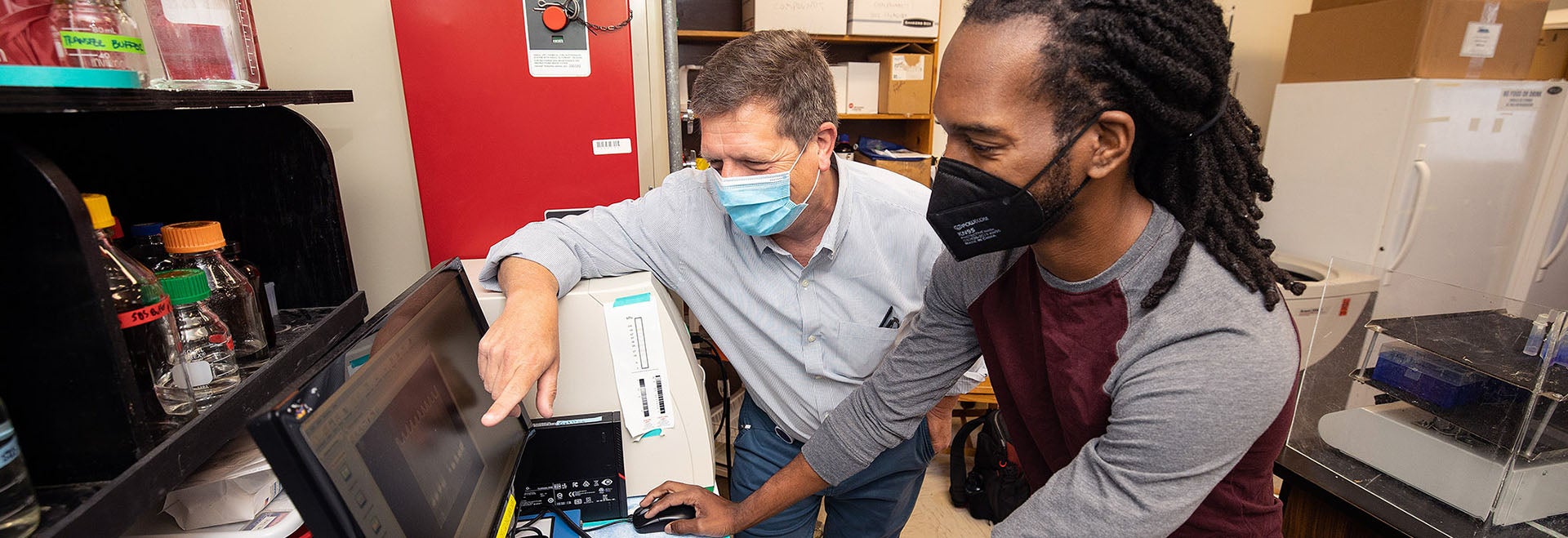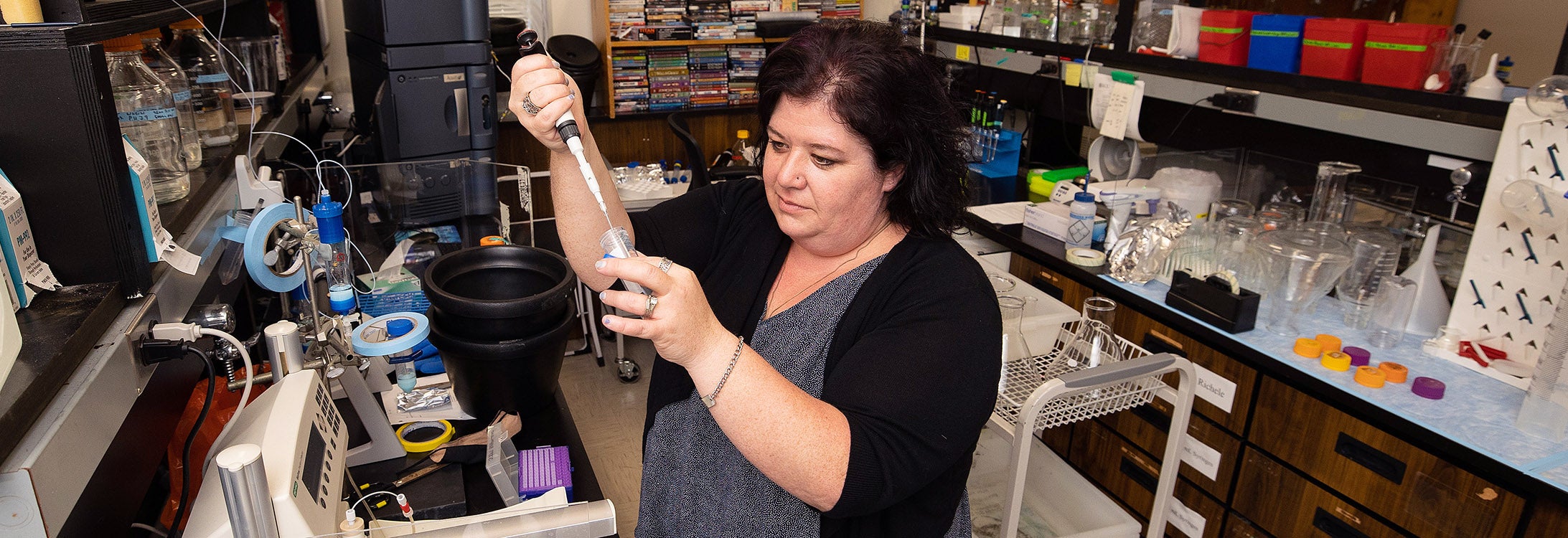BRAIN HEALTH
He studies bacteria. She studies proteins. Together, they could cure Parkinson’s.
Decades before someone starts experiencing the hand tremors, shaking or loss of balance associated with Parkinson’s disease, changes in their gut could signal potential problems.
Researchers at East Carolina University’s Brody School of Medicine are studying this link, and whether Parkinson’s and other neurodegenerative diseases start in the brain or the stomach. Parkinson’s affects more than 10 million people worldwide and has no cure.
“Typically, researchers look at what’s going on in the brain to try to solve the issue, and that’s been incredibly difficult, which is why there are no drugs to do it. So, if you work your way back, what is the early onset of these neurodegenerative diseases? The gut is really connected to the brain. We are trying to concentrate on the gut and what it can tell us,” said Dr. John Cavanagh, professor and chair in the Department of Biochemistry and Molecular Biology.
In addition to helping the body digest food, the gut microbiome boosts the immune system and moderates inflammatory responses. Recent studies have highlighted the importance of the microbiome on our lives, both in health and disease.
“Bacteria in the gut make proteins that look similar to the proteins in our brain that cause Parkinson’s. Those proteins from the gut can interact with the proteins in the brain and — we think — set off the disease,” said Dr. Tonya Zeczycki, associate professor of biochemistry and molecular biology. “I’m figuring out how they interact. Then I hand that information off to John, and he works on shutting off those bacteria from making those proteins.”
Zeczycki and Cavanagh combined their research interests after receiving a $20,000 grant from the Wooten Family Initiative for Brain Health Research.
“This is something we couldn’t have done on our own. We wouldn’t have been able to join forces and work together without this grant as an incentive,” Zeczycki said.
The Wooten Family Initiative for Brain Health Research, previously known as the Wooten Lab for Alzheimer’s and Neurodegenerative Diseases Research, was established in 2008 by Dr. Harriet Wooten in memory of her husband, Dr. John L. Wooten, an orthopedic surgeon who died of Alzheimer’s disease in 2004. While previous projects focused narrowly on Alzheimer’s, current and future grants will focus on brain health more broadly. Zeczycki and Cavanagh are the first to receive a grant from the revamped program.
The Wooten family has a long history in Greenville’s health care scene and close ties to the Brody School of Medicine. John L. Wooten’s father, Dr. William Isler Wooten, was the first surgeon in eastern North Carolina and was instrumental in opening Pitt Community Hospital, now Vidant Medical Center. His son, Lamont Wooten, became an orthopedic surgeon. His grandson, also John Wooten, graduated from Brody and is a medical resident at UNC-Chapel Hill.
“My grandad wanted to support neurocognitive research, especially Alzheimer’s. As his disease progressed, my grandmother and my parents decided to continue supporting those efforts,” John Wooten said.
The new grants will “hopefully lead to better understanding and potential treatment of neurocognitive diseases,” he added. “If we can get it done here in Greenville, we can show that we do have cutting-edge and high-caliber research at home.”
Similar to the Brody Brothers Endowment Fund grants, the Wooten grants are meant to provide seed funding for researchers to gather preliminary data and apply for larger grants down the road.
“We’re both really passionate and excited. And our students have been so excited about it,” Zeczycki said of the Parkinson’s research.
“We’re giving students their first foray into trying to cure a neurodegenerative disorder. If we don’t end up solving it, maybe the next generation will,” Cavanagh added.
Brody has increased its focus on brain health recently, Zeczycki said, and for good reason. “I think people are starting to realize that brain health is linked to so many things in general. This is a concern especially with an aging population. It’s something we need to have a solid understanding in.”
The Wootens understood that need, and the Initiative for Brain Health Research honors their legacy.

Dr. John Cavanagh, left, works with Chris McCloud in a lab at the Brody School of Medicine.
Related:
Four medical students earn prestigious scholarship from ECU
ECU researchers target cell mitochondria for potential leukemia therapies
